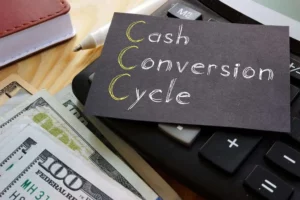The accounts payable (AP) team handles a high volume of financial transactions and administrative tasks daily. Its responsibilities include processing invoices, managing expense reports, maintaining accurate financial records, and more. Many of these tasks are repetitive and routine, especially when performed at scale. The heavier the reliance on manual processes, the greater the risk of errors. This blog post will analyze the causes of such mistakes and offer recommendations to prevent duplicate payments.
What are Duplicate Payments?
Double operations occur when a firm mistakenly pays for the same item or service twice or more. It can be due to various reasons. So, a second operation may mistakenly happen in response to a counterparty’s reminder, even though you have already sent the first check via email. Sometimes, companies pay bills twice because a double entry accidentally appeared in their accounting workflows. Such errors are common in the financial world, and knowing how to prevent duplicate payments is essential.
According to the American Productivity and Quality Center, between 1% and 2.5% of the total payment documents processed by firms each year are duplicated or in error.
Sometimes, such duplication is due to external or internal fraud. External fraudsters may submit bills with minor changes to dates and numbers so that you will transfer money again. Internally, specialists who have access to AP may purposefully duplicate money transfers. Often, they collude with an external party.
What Problems Can Duplicate Payments Cause?
Double operations create many troubles for firms and their counterparties. Let’s analyze the most widespread problems.
- Lost time and savings. A double electronic payment requires AP experts to deal with two separate accounts payable transactions and spend working hours defining and resolving mistakes. Your counterparty’s accounts receivable (AR) representatives must also devote time to returning cash to your firm as a credit.
- Deterioration of relationships with counterparties. Double operations create additional jobs for your partner’s AR staff, which may lead to conflicts. Partners are essential to a business’s smooth operation, so it is critical to maintain optimal cooperation and minimize mistakes.
- Lost profits and penalties for late money transfers. If double bills are an element of a fraudulent scheme, AP specialists must still pay the supplier for commodities and services. Incorrect payment algorithms lead to double operations and may cause missed discounts or even penalties for late operations, creating additional spending in the AP sector.
AP representatives spend approximately 25% of their working hours searching and fixing financial mistakes, which could be spent solving strategic tasks. We recommend adopting automated solutions to prevent duplicate payments.
Identifying Duplicate Payment Risks
Problems with double payments often occur due to minor inaccuracies and inefficient systems. Understanding the main risks allows AP specialists to eliminate problems.
- Incorrect data entry. Typically, duplicate money transfers are due to mistakes in invoice processing, including incorrect entry of numbers. Companies should strictly follow automatic general ledger (GL) coding rules to reduce this risk.
- Transactions performed outside the AP team. Sometimes, employees transfer money to suppliers without informing the AP specialists. There is nothing wrong with the team conducting the operation with a banking card or Automated Clearing House (ACH). Still, they must know the coding standards to prevent duplicate payments.
- Lack of a centralized system. Firms cooperate with counterparties that offer different payment methods for commodities and services. Some partners prefer direct invoice payments, while other sellers interact with purchase card transactions. In such a situation, sending money by any offered method is convenient. Still, the downside of such interaction is the risk of duplicate operations wherever multiple payment options are allowed. The cost of double transactions goes beyond a single transaction. Such a mistake can disrupt financial transactions and compliance and worsen relations with counterparties.
It is critical to define the causes of inaccuracies as early as possible to avoid double money transfers in the future. Once a double transaction is detected, it is necessary to notify the merchant, document the double money transfer in your records, and adopt proper actions.
How to Prevent Duplicate Payments
Every year, firms lose profits due to double money transfers. Although no system is foolproof, adopting the optimal combination of management elements, innovative digital products, and processes may significantly decrease risks. Let’s consider how to avoid duplicate payments and extra expenses.
- Streamline the invoice receipt procedure. Many firms utilize a special email to deal with bills so that they accumulate in one place. Paper bills can be scanned upon receipt and added to the same storage as virtual ones.
- Monitor vendor data. Finance professionals should create a separate file for each counterparty they cooperate with. The likelihood of double operations increases if the file becomes cluttered with old and outdated data. Send messages to counterparties to check their current data with you and make changes if necessary.
- Organize an ongoing AP audit. Visibility is critical to detecting and eliminating overpayments. Constantly monitoring AP and checking bills on the last days of the month helps accountants define inaccuracies and possible complications. Constant auditing raises the transparency of month-end reporting for experts who generate statements.
- Choose a paperless process to simplify control and management. Virtual documents will not get lost, and a unified AP documentation system will make it easier to find all additional data. By eliminating paper processes and streamlining activities, your specialists will decrease the risk of losing bills.
Remember that outstanding bills often create problems when processing them. Add new suppliers after invoicing and pay commodities and services on time. This will improve cooperation with counterparties and decrease confusion among AP specialists.
Leveraging Technology for Duplicate Payment Prevention
Advanced software efficiently prevents duplicate payments in financial operations. Let’s analyze the most suitable features you have to consider:
- Invoice handling. Adopting a unified solution for getting, coding, and processing bills eliminates many risks connected with AP. You should centralize invoice processing to automate interactions with counterparties. This lets you link each bill to a purchase order (PO). An AP automation application simplifies bill processing and allows you to perform procedures around the clock.
- Artificial intelligence (AI) and machine learning (ML). AI-backed solutions analyze invoice history and behavioral patterns to detect duplicates, even if fraudsters change some details. This allows you to define high-risk duplicates that traditional systems cannot recognize.
- Standardized workflow to prevent duplicate payments. Let’s say a company has several AP specialists who process invoices. If there is no clear workflow, they may duplicate transactions. If employees process payment documents manually, ensure each bill goes through a standard procedure. You can select a specialist who will work with all bills from a certain supplier. We recommend automating the workflow with a procure-to-pay platform. It utilizes AI tools to control, approve, and pay each bill. It helps eliminate double money transfers and creates a record for each transaction.
- Online bill registration. Optical character recognition (OCR) algorithms and electronic billing systems streamline invoice processing by standardizing and controlling databases at the entry stage. This decreases the risk of human inaccuracies and ensures that all bills are recorded similarly.
- Real-time control and notifications. Dashboards with exception reporting allow AP specialists to monitor operations continuously. Such systems define patterns or anomalies indicating double operations and send them to live agents.
State-of-the-art AI-driven accounts payable automation software continually learns from your firm’s financial patterns to enhance its ability to detect double billing. The longer you utilize the app, the better it identifies potential cash problems. When choosing automation tools, ensure they sync with your ERP system.
Conclusion
Eliminating duplicate invoices is critical for your firm’s financial prosperity and operational productivity. Double billing drains savings and damages cooperation with counterparties. Inaccuracies in invoice processing may also disrupt the accuracy of budgeting and reporting. To avoid such negative consequences, firms must adopt invoice verification procedures and use innovative approaches in AP activities, including AI and payment automation instruments.
BooksTime is ready to help small and medium firms prevent duplicate payments. By adopting responsible policies, firms may improve their financial stability, streamline activity, and ensure that all expenditures contribute to your firm’s growth.


















